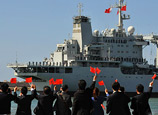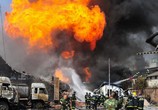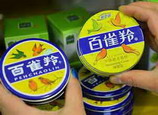
While European buyers at the Canton Fair will decline this year, US buyers will stabilize amid the country's economic recovery, and more buyers will come from emerging countries, especially South America and Africa, as well as Russia, whose accession to the World Trade Organization improves its trade environment, Liu said.
But challenges — such as rising costs, a labor shortage, renminbi appreciation, increasing trade protectionism, the re-industrialization in developed economies and strengthening competition in labor-intensive industries from neighboring countries — will continue to hit Chinese exporters, Liu said.
Lin Wei, general manager of Big Tree Toys, said the company's exports dropped almost 20 percent in the first quarter from a year ago.
"Demand in the US and Europe is recovering slowly. But we are yet to see a rebound in exports in such major markets," Lin said.
The Shantou-based toy maker regularly attends the Canton Fair.
"We are looking for more clients from emerging markets such as the Middle East and South America during the fair, to diversify our sales channels," he said.
However, Zheng Yi, general manager of Guangzhou Chaofan Leather, said the company's sales in overseas markets increased more than 20 percent year-on-year in the first quarter due to years of efforts in developing high-end products that are tailored for European and US markets.
"We are now busy making products for overseas orders from the last session of the Canton Fair. The reason for the sustainable growth is that we have put a lot of attention into self-developed brands, which closely meet the demand in the overseas market," Zheng said.
Along with stable business growth in the overseas market, the leather company is also eyeing the domestic market by developing new brands, according to Zheng.
With an exhibition area of 1.16 million square meters, the 113th Canton Fair has 59,531 exhibition stands, 22 more than the last session.
 |
















 Photo story: A family infected by HIV
Photo story: A family infected by HIV


![]()
